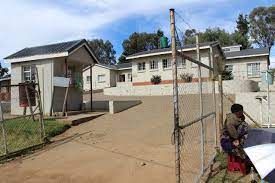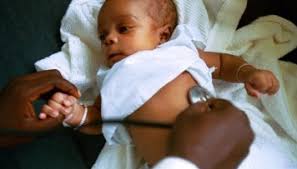Botha-Bothe, Feb. 19 – The closure of Rampai Clinic due to persistent water shortages and an inoperative solar system has left more than 15 villages in Upper Nqoe Community Council without vital healthcare services, deepening an already dire situation for many residents.
District Health Manager Dr. Lebohang Sao has acknowledged the clinic’s closure, explaining that while she had believed community efforts had kept it operational, the clinic board ultimately resolved to shut it down due to the lack of essential utilities. The abrupt halt in services has sparked concern among residents who now face long and costly journeys to alternative healthcare facilities.

A Community in Crisis
For villagers in Mahlekefane and surrounding areas, Rampai Clinic has been more than just a medical facility—it has been a lifeline. However, without electricity, the clinic cannot assist expectant mothers during childbirth, and the absence of running water has made it impossible to maintain hygienic conditions. According to Community Councillor Mrs. ‘Masontaha Lefisa, these challenges rendered it necessary to cease operations.
“As the clinic committee, we decided to stop services because we realized that these persistent issues were not being addressed. We need a fully operational clinic that does not compromise the quality of healthcare,” she stated.
Many villagers rely heavily on Rampai Clinic, as the nearest alternative, Mamohau Hospital in Ha Lejone, is not easily accessible. Some residents must pay over M300 to reach it, while others have no public transport options, making emergency healthcare nearly impossible to access.
A Threat to Maternal and General Health
The clinic’s closure has caused immense distress, particularly for pregnant women who now face the likelihood of delivering their babies at home without proper medical assistance. Mrs. Lefisa fears an increase in maternal deaths if the situation is not resolved swiftly.
“We already have women giving birth at home even when the clinic is operating. Now that it’s closed, the risk is even higher. We all know the dangers associated with home deliveries, especially in emergencies,” she added.
The crisis has also disrupted routine medical care. Boithatelo Village Health Worker Matankiso Molapi noted that patients who depend on the clinic for chronic disease treatment, prenatal check-ups, and vaccinations are now at risk of lapsing in their medical regimens.

“I had a patient who was due for her clinic visit on Tuesday, but she told me she cannot afford to travel to Mamohau. That means she will miss her medication,” she explained. “People still come to us for advice, but some problems—especially those requiring medication—are beyond our control.”
Desperate Situations and Growing Fear
The shutdown has led to nightmarish scenarios for families who now struggle to handle medical emergencies. Matumelo Shasha, a resident, recounted how her husband mistakenly drank paraffin one night. She rushed him to Rampai Clinic, only to find that the facility was non-functional.
“We had no choice but to travel to Mamohau, which cost us M1000 in transport. This is not sustainable for us. Some people could die on their way to the hospital because the roads to Ha Lejone are in poor condition,” she lamented.
Others, like ‘Malijo Kokoana, fear that they may face unplanned pregnancies due to the lack of family planning services. “My due date for contraceptive pills is approaching, and I am afraid the clinic will still be closed. I’m not financially prepared for another child,” she said.
For people like Taunyane Rapoli, who depends on the clinic for his Anti-Retroviral (ARV) treatment, the closure presents a significant health risk. Missing his medication could severely impact his well-being, and the cost of traveling to another hospital is unaffordable.
“I plead with authorities to act quickly. We need this clinic back in operation,” he urged.
A Call for Urgent Action
The situation at Rampai Clinic highlights the critical role rural healthcare centres play in ensuring community well-being. Without immediate intervention, residents will continue to suffer, and preventable health crises could escalate.
Villagers are now appealing to the government and health authorities to restore services at the clinic by addressing the water and electricity issues. They emphasize that their health and survival depend on it.
Until then, the residents of Upper Nqoe remain in limbo, anxiously waiting for a resolution to a crisis that has left their most vulnerable members at risk.
The closure of Rampai Clinic has created a severe public health crisis, putting the lives of many residents at risk. Pregnant women are now forced to give birth at home, increasing the likelihood of complications, infections, and maternal deaths due to the lack of skilled birth attendants and emergency obstetric care.
Accessing medical assistance is a major challenge, as residents must travel long distances to Mamohau Hospital, which is costly and time-consuming, especially given the poor road infrastructure. Patients relying on chronic disease management, including those on ARVs, hypertension, and diabetes medication, risk defaulting on their treatment, leading to severe health complications.
Furthermore, the closure of the clinic has placed immense pressure on Mamohau Hospital, leading to overcrowding and an overwhelmed healthcare workforce. The urgent restoration of Rampai Clinic is critical to preventing further loss of life and ensuring access to essential medical services for the affected communities.
Lesotho’s healthcare system faces significant challenges due to its mountainous terrain, limited resources, and a high burden of diseases. The country relies on a combination of public and private healthcare services, with substantial support from international donors. The Ministry of Health oversees the system, which includes one national referral hospital, 18 district hospitals, and over 200 clinics and health posts. However, rural communities struggle with access due to poor transport infrastructure.
The country has one of the highest HIV prevalence rates globally, with tuberculosis (TB) and rising non-communicable diseases such as hypertension and diabetes adding to the health crisis. Maternal and infant mortality rates remain high due to limited access to emergency obstetric care.
Ends
